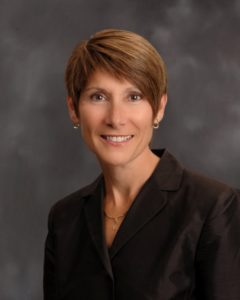Women in Health: Engaging Our Aging Communities
March 4th, 2020 | viewpoint
 This International Women’s Day, I sat down with Margaret Franckhauser, who has more than 35 years of experience in the fields of aging and community health. As a recent graduate from Queen Mary University of London, looking towards entering the public health sphere, I wanted to talk with her about her vision of the future for health services in the U.S. admist a changing demographic.
This International Women’s Day, I sat down with Margaret Franckhauser, who has more than 35 years of experience in the fields of aging and community health. As a recent graduate from Queen Mary University of London, looking towards entering the public health sphere, I wanted to talk with her about her vision of the future for health services in the U.S. admist a changing demographic.
Maalana: Hi Margaret, it’s great to get a moment to speak with you. Can you tell me about your work here at JSI?
Margaret: I began working at JSI in September in the Colorado office as the director of aging services, a role that JSI added in response to the country’s rapidly aging population. In a nutshell, we’re having fewer children and are living longer, and this trend shows no signs of slowing.
I don’t see our aging population as a problem; I see it simply as a demographic change that is allowing us to live with ourselves and our loved ones longer and as an opportunity to make growing less stressful. Yet our country’s health services, from HIV prevention to community health, are not configured for older adults. At JSI, through our local, state, and national projects, we can help build health services that meet the needs of current and future communities, in which an increasing number of people are older than 50, 60, 70.
Maalana: This is an exciting and challenging time, where were you before coming to JSI?
Margaret: I’m a nurse practitioner by background, and for 20 years, I ran a community-based agency serving older adults in New Hampshire, the state with the second-highest number of residents who are older than 65. I came to appreciate the unique clinical aspects of aging. I also saw my clients’ desperate and unfulfilled need for services.
When I was much younger, I worked in family planning. That’s when I first heard about JSI’s leadership on many state health efforts, and the trainings it developed and conducted for larger public health programs in New Hampshire and all over the country.
Maalana: What do you find the most challenging aspect of your work?
Margaret: From a policy perspective, when we created Medicare and Medicaid, we didn’t think about the increase in the aging population. Medicare offers little in the way of long-term services and support. Medicaid covers nursing homes and some community services, but most people want to stay in their homes. What people most need are supportive, not medical, services. Health and social policymakers must begin to finance long-term care and support.
The biggest challenge, though, is the prevailing sense among people in the United States and the whole western world, that aging is a series of cumulative losses that is sad and to be staved off for as long as possible. Well, I don’t agree with that!
Think about the older people you know who are active, interested, and contribute to society. Our culture tends to write people off after retirement, but older people are a wonderful (and often unseen and unappreciated) asset to our communities, and we should care for them as such.
Maalana: Agreed! My grandmother loves what she’s doing now, working in a law office after her official retirement, and she’s the one who got me back into exercising every day. What do you hope to accomplish this year?
Margaret: This first year, I really want to work across all of our areas of expertise and find aging-related work opportunities in our various projects as well as develop new projects dedicated to the health and well-being of our aging population. Also, I want to create a network within our organization so that we can be better informed and more effective in reaching and engaging the aging population.
Maalana: If you weren’t working in public health, what would you be doing?
Margaret: I love investigative journalism, especially public radio. You get great stories instead of sound bites. I enjoy uncovering why something is the way it is. Once you determine that, you can begin to work on a formula for change. In my free time, I ski, I hike, I’m outside as much as possible. I knit too, just as a way to escape the analytical world and enter the creative one.
Written by: Maalana Hislop, Communications Coordinator
We strive to build lasting relationships to produce better health outcomes for all.